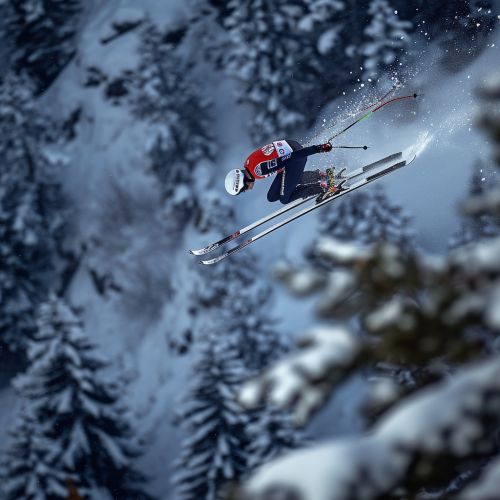1948 Winter Olympics
Overview
The 1948 Winter Olympics, officially known as the V Olympic Winter Games, were a multi-sport event held in St. Moritz, Switzerland from January 30 to February 8, 1948. This marked the first time the Winter Olympics were held after a twelve-year hiatus due to World War II. The games saw the participation of 28 nations and 669 athletes competing in 22 events across 4 sports.
Host Selection
St. Moritz was selected as the host city for the 1948 Winter Olympics by the International Olympic Committee (IOC) in 1946. The city had previously hosted the 1928 Winter Olympics, making it the first city to host the Winter Olympics twice. The selection was made despite concerns about the city's altitude and unpredictable weather conditions.
Participating Nations
28 nations participated in the 1948 Winter Olympics. Korea and Lebanon made their Winter Olympic debuts. Denmark, Iceland, and Venezuela also made their first appearances at the Winter Olympics.
Sports
The 1948 Winter Olympics featured competitions in four sports: Alpine skiing, bobsleigh, ice hockey, and Nordic skiing. Nordic skiing was further divided into cross-country skiing, Nordic combined, and ski jumping.


Alpine Skiing
The alpine skiing competition at the 1948 Winter Olympics consisted of men's and women's downhill and slalom events. The combined event, which had been a part of the 1936 Winter Olympics, was not included in the 1948 games.
Bobsleigh
The bobsleigh competition at the 1948 Winter Olympics consisted of two events: two-man and four-man bobsleigh. The competition was held at the Cresta Run, a natural ice skeleton racing toboggan track.
Ice Hockey
The ice hockey tournament at the 1948 Winter Olympics was the sixth edition of the event at the Winter Olympics. The tournament was won by Canada, who defeated Switzerland in the final.
Nordic Skiing
The Nordic skiing competition at the 1948 Winter Olympics consisted of three disciplines: cross-country skiing, Nordic combined, and ski jumping.
Medal Table
Norway led the medal table at the 1948 Winter Olympics, winning a total of 10 medals, including 4 gold. Sweden and Switzerland followed with 10 and 9 medals respectively.
Legacy
The 1948 Winter Olympics left a significant legacy in St. Moritz and the wider Olympic movement. The games were the first to be televised, albeit on a very limited scale. They also marked the return of the Olympic Games after World War II, symbolizing a return to international cooperation and sporting competition.
